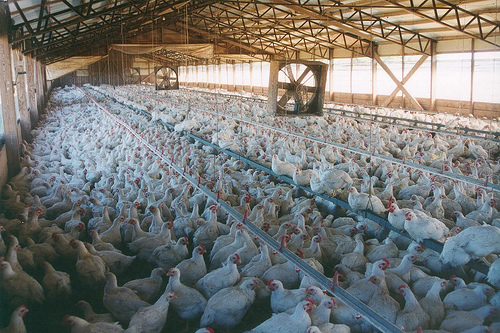Today's topic is a personal favorite of mine: EGGS. I feel like I have a special relationship with my eggs. As someone who was a self-proclaimed picky eater most of my life, my experience with taste was fairly restrictive for a long time. The day I discovered eggs was the day I finally realized I needed to loosen my lips. Forgive me for sounding snobby, but I hold this particular food to high standards. Hence, I feel it is essential to describe some of the standards of the industry.
Most eggs are
factory farmed eggs. They come from one variety of chicken, the White Leghorn, and these chickens are fed the same type of unnatural diets I have described in previous blogs. Then you have cage free eggs, farm fresh or all natural eggs, and finally free range organic eggs, all held to their own standards.
Recently, West Virginia University made the decision to switch to cage free eggs certified by
Humane Farm Animal Care. A laying hen raised under Certified Humane conditions meets the following standards: "nutritious diet without antibiotics or hormones, animals raised with shelter, resting areas, sufficient space and the ability to engage in natural behaviours." I would like to congratulate the University. The students said they wanted food produced more naturally and humanely, and the administration listened to their voices. Everyone who eats on campus should offer them our applause and gratitude. One thing I feel I have to point out though: cage free is not free range.
When you first heard the term cage free, what did you imagine? Did it look like
this?
Certified Humane chickens still do not require access to the outdoors. According to their own fact sheet, the organization requires chickens have only the space to stand up, turn around, and stretch their wings. As for being allowed to engage in natural behaviors, this means the chickens have access to dust bathing (an activity chickens preform to clean their coats). Pens are still crowded enough that we see unnatural behaviors occur as well. Humane Farm Animal Care's own standards state: "It is accepted that in colony housing systems there is a great risk of outbreaks of cannibalism. The pain and suffering of the hens that are being pecked to death is appalling and may quickly affect a large proportion of the flock." Beak-trimming is considered an appropriate solution to chickens' attempts to eat each other. If you had multiple dogs, and one day they started gnawing at each other, would you think it best to take them to the vet to pull out their teeth?
The only chickens raised in a truly natural, sustainable way are free range chickens. They are guarenteed access to the outdoors, and the standards even cover the types of vegetation and shade needed to accommodate these lucky hens. Furthermore, their diet is the most natural and their eggs the most delicious! Because they are allowed to forage for weeds and insects as they would in the wild, their yolk is darker and richer. Just compare for yourself:
Left: Free range, Right: Factory farmed
Don't get me wrong, I am thrilled to hear that if I want to eat scrambled eggs at "drunk breakfast" in the Mountain Lair, I know they came from a hen that wasn't loaded up with antibiotics. However, I feel like sometimes people hear something is certified, and think that means it's the top of the line. I'm not trying to say cage free is not a step forward. I'm not trying to say free range is the only acceptable way to eat eggs. All I'm trying to say is a sticker does not necessarily mean what it implies. If you want to know what you're eating, you have to look into what the industry is really selling you! In the end, you'll be asking for higher quality.









